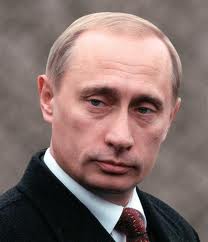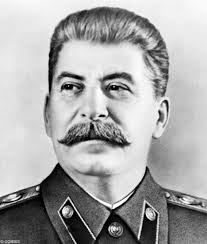Man is a wolf to man, according to The Grand Inquisitor in Dostoevskii’s The Brothers Karamazov. He has no inclination to be good, but is weak and rebellious. He cannot escape from the compulsion of logic. He is doomed to self-destruct through the assertion of his will. His quest for harmony is futile, unless he submits to a strictly ordered paradise on earth. The necessary forces of “miracle, mystery and authority” must be enforced in this “spiritual kingdom,” in the words of The Grand Inquisitor. Man does not want his freedom. He must be made good.
Zosima, however, believes the opposite. He trusts in the potential of man, who does not have to live according to logic, according to principles that deny him any choice or freedom. Nor does he have to be destroyed by freedom, allowing it to become an all-devouring passion. Rather, he must nurture the good and the beautiful that exists within him. The hope for man consists in his capacity to love, to engage in active love. And through this love, the heart and the mind can live together harmoniously.
Dostoevskii saw his final novel, The Brothers Karamazov, as a response to The Grand Inquisitor’s negation of God, his answer lying in man living like Zosima, according to Christian Orthodoxy. The book, therefore, is the author’s hope for, and commitment to, humanity: his belief in the good and beauty that he was sure not only existed within man but would lead to his salvation. And though I do not agree with Dostoevskii’s conclusion – that the answer to man’s suffering lies in the Christian faith – it is nevertheless my book of a lifetime due to the sheer scope, rigour and passion of the author’s endeavour.
The Karamazov nature – sensual and innocent, emotional and intellectual, loving and contemptible – is representative of the contradictory nature of the Russian man, the three brothers coming to symbolize these different natures, which wrestle with one another for dominance throughout the novel’s course. Through their suffering, the brothers all seek harmony, which consists in their various attempts to reconcile these conflicting personalities, though none of them will attain this harmony unless they live with Christ in their hearts.
Dostoevskii does not believe that the ideal of Christ can be fully realized in any of them, this an impossible ideal, contradicting man’s essential nature, in a state of struggle and imperfection on earth. Human life consists in the struggle of good and evil, and this conflict is essential not just incidental. But through this struggle, it is possible for man to gain redemption on earth, which one of the brothers, Aliosha, does finally gain. Another brother’s life, Ivan’s, conversely ends in suicide.
Ivan lives his life according to logic and reason alone, unable to incorporate Christ into his soul, and though I do not believe the absence of Christ leads to his ultimate demise, the absence of love surely does. Ivan sees the suffering of innocent children as too high a price to pay for the attainment of any higher ideal. In his words, “They say without it [suffering] man could not live on this earth, for he would not understand the difference between good and evil. Why should one understand that damned difference… if that’s the price to be paid? All the knowledge in the world is not worth the child’s tearful prayers to Dear Father God.” Ivan, convinced of the power and cogency of his argument, lives by reason alone, denying any love in his heart. Zosima, on the other hand, believes that, “There is no sin in the whole world that God would not forgive the truly penitent. It is altogether beyond any man to commit such a sin as would exceed God’s infinite love… If you repent, you must love. And if you love, you are of God… Love gains everything, redeems everything.”
Though I find it hard to accept Zosima’s claim, that all can be forgiven and find redemption, by the end of the novel I realize I would rather live with hope in my heart than despair, with feeling rather than logic, with love rather than hate. The wonder and importance of Dostoevskii’s The Brothers Karamazov lies here, in its capacity to inspire faith in those who live by reason alone, to turn cold hearts warm.




